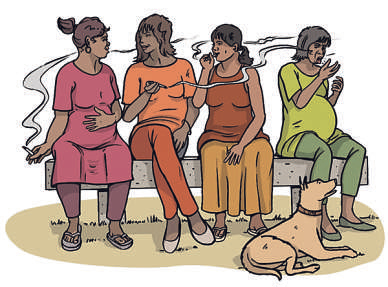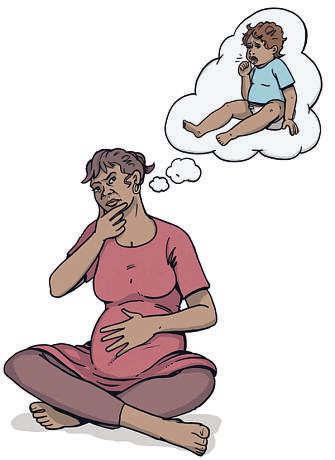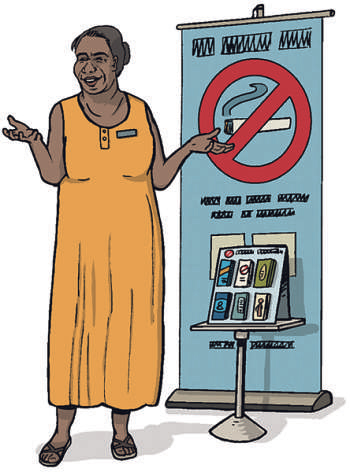Published on Monday, 19 December 2016 at 12:00:00 AM
 A new research project starting soon in the Pilbara will take an innovative approach to tackling smoking among Aboriginal women.
A new research project starting soon in the Pilbara will take an innovative approach to tackling smoking among Aboriginal women.
Telethon Kids Institute researchers, Associate Professor Roz Walker, Dr Tracy Reibel and Dr Paula Wyndow, will be working in partnership with Rural Health West and local health staff (including midwives, tobacco action officers and community care workers) from Wirraka Maya Health Service Aboriginal Corporation and Puntukurnu Aboriginal Medical Service to develop a women centred, trauma informed approach to quitting smoking.
 The project, funded through the Australian Government’s Tackling Indigenous Smoking program, will work with Aboriginal women living in Port Hedland, South Hedland and the communities of Warralong, Jigalong, Parnngurr, Punmu and Kunawarritji, to understand the role smoking plays in their lives. This knowledge will be used to refine and refocus existing quitting smoking programs.
The project, funded through the Australian Government’s Tackling Indigenous Smoking program, will work with Aboriginal women living in Port Hedland, South Hedland and the communities of Warralong, Jigalong, Parnngurr, Punmu and Kunawarritji, to understand the role smoking plays in their lives. This knowledge will be used to refine and refocus existing quitting smoking programs.
“The aim is to develop a positive community approach to stopping smoking and provide a safe space for women to discuss issues that influence their smoking such as trauma, violence, stress, and social functioning,” said Associate Professor Roz Walker.
"Whilst many women do reduce or stop smoking in pregnancy there is still a high proportion of women who continue to smoke during pregnancy or who resume smoking again once the bub is born.”
“This highlights the need to address smoking cessation in a more holistic way that puts Aboriginal women at the centre of their own health care and supports them to make choices that are positive for their own health and wellbeing as well as the health of their unborn babies and families.”
 The project will build on the existing NHMRC Project – Making FASD History in the Pilbara, which is targeted towards supporting women before, during and after pregnancy to minimise alcohol and other substance use. The additional focus on smoking will strengthen and support the roles Community Care Workers have with their local community members and harness wider community engagement.
The project will build on the existing NHMRC Project – Making FASD History in the Pilbara, which is targeted towards supporting women before, during and after pregnancy to minimise alcohol and other substance use. The additional focus on smoking will strengthen and support the roles Community Care Workers have with their local community members and harness wider community engagement.
It is anticipated that learnings from this innovative approach may be relevant to other health promotion activity and program development in other Aboriginal and Torres Strait Islander communities.
Creating locally relevant conversations around health behaviours is key to improving community health literacy about harmful health behaviours.
The project will commence in the near future and run through to June 2018.

Back to All News